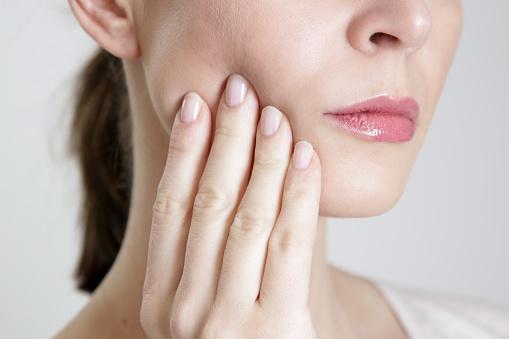|
Treatment pricing
Starting at $600 |

Bruxism is the medical term used to describe excessive teeth grinding or jaw clenching. It can happen if you subconsciously clench or grind your teeth when you're awake or clench/grind teeth during sleep. This can result in disrupted sleep, headaches, and damage of the teeth. Another unwanted effect that this can lead to is thickening of the masseter muscle giving the impression of a squared jaw. Botulinum toxin is an effective treatment for patients who grind, clench, develop temporal-mandibular joint pain, or have masseter hypertrophy. Botulinum toxin when injected into the temporalis and masseter muscles also helps with tension headaches and migraines related to clenching of the jaw. This significantly relaxes the muscle and reduces the wear and tear on the teeth due to grinding.
The Temporomandibular Joint (TMJ) connects the lower jaw (or mandible) to the skull (or temporal bone), and its function is necessary in order for you to properly chew, speak, yawn, etc. The discomfort that originates from jaw injury is known as Temporomandibular Joint Syndrome or Temporomandibular Disorder (TMD). TMD is a disorder that causes either slight or intense pain in the jaw to the extent the face can become tender to the touch. Headaches are often associated with this condition and since the temporomandibular joint connects the jaw to the skull. The pain is capable of radiating to other parts of the body, including the temples and neck. Other symptoms in the disorder include trouble opening or closing the mouth, lock jaw or a misaligned bite. Another more common symptom that coincides with the pain is a clicking or popping sound that occurs whenever the jaw opens or closes.
Symptoms of Chronic Teeth Grinding:
- Frontal headaches
- Pain in the ear, jaw, mouth, face
- Worn enamel
- Flattened, fractured or chipped teeth
- Tooth pain or sensitivity
- Migraines
Treatment
Botox/Dysport has been shown to improve a variety of medical conditions stemming from muscle overexertion. It works by temporarily weakening muscles, and in this case, providing relief from pain. Once injected, the muscle relaxes and relieves tension in the jaw. Botox treatments for TMJ have been found to be highly effective at decreasing pain and increasing jaw movements in individuals suffering from TMJ. They also improve with other symptoms stemming from Bruxism or TMJ including headaches, migraines and teeth grinding.
Procedure:
Treatment works by strategically administering a series of injections directly into the masseter muscle, which is the muscle primarily exercised while speaking and chewing. Injections are minimally invasive, without pain and there is no downtime.
Results:
As with any treatment with a neuromodulator, results can take 1-2 weeks before taking effect. In order to achieve the full effects of Botox treatment, repeat sessions will be necessary over a matter of a few weeks. After two sessions, many feel significant relief from their TMJ disorder, and they may also notice an additional benefit of smoother skin.
Down Time:
There is generally no downtime with this procedure.


